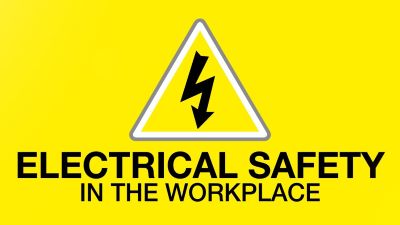
- This event has passed.
Electrical Safety, Theory and Application

Background & About the Course:
Electrical safety is essential in all environments, but the risks are significantly higher in workplaces involving high-voltage equipment. Engineers, electricians, technicians, and power line workers face direct exposure to electrical hazards, while office staff and others may encounter indirect risks.
The Occupational Safety and Health Administration (OSHA) enforces electrical safety standards to mitigate hazards such as electric shock, electrocution, fires, and explosions. Compliance with these standards helps safeguard workers and reduce workplace incidents.
This course equips participants with essential knowledge of electrical safety practices, regulatory requirements, and hazard mitigation techniques. By understanding and applying these principles, participants can create a safer work environment.
Course Objectives:
- Identify four types of injuries caused by electrical contact
- List three main workplace electrical hazards and mitigation strategies
- Explain three protection methods against electrical hazards
- Describe the role and function of a ground fault circuit interrupter (GFCI)
- Recognize three warning signs of potential electrical hazards
- Apply electrical safety procedures and standard codes
- Enhance identification and mitigation of electrical safety risks
Who Should Attend:
- Electrical Technicians, Supervisors, Engineers, and Managers
- Maintenance Teams
- Production Teams
- HSE and Quality Assurance Staff
Course Content:
- General Information
- Common Electrical Hazards:
- Shock, Burns, Fires
- Qualified Worker Requirements
- Workplace Injury Statistics
- Basic Electrical Principles:
- Conductors, Insulators, Grounding Systems
- Key Definitions:
- Qualified vs. Unqualified Employees
- Awareness Training Requirements
- Common Electrical Hazards:
- Types of Electrical Hazards
- Energized (hot) circuits
- Loose connections and frayed insulation
- Missing ground prongs
- Wet conditions near electrical equipment
- Damaged tools and ungrounded equipment
- Improper extension cord use
- Electrical Protection
- Electrical Safety Rules and Standards
- Proper Grounding and GFCI Use
- Insulated Tools and PPE
- Lockout/Tagout Procedures
- Circuit Overload Prevention
- Housekeeping for Electrical Safety
ABOUT THE COURSE LEADERS:
Ir. Ali Mashar, M.Eng.Sc., IPU/Supriyanto, S.T., M.T
Ir. Ali Mashar, M.Eng.Sc., IPU graduated from New South Wales University (UNSW) Sydney Australia. His core expertise is power and control or electrical engineering. He has been head Energy Conversion Engineering of Politeknik ITB (POLBAN) and lecturer. He is also head of Laboratory of energy engineering PEDC.
Ali Mashar has delivered in-house & public training classes since 2010 covering specific topics on electrical & control system, energy conservation. Companies where he shares his expertise are local & multinational companies such as: Indonesia Power, Pemda Papua, PT. Badak, Cogindo, Star Energi, Chevron, Freeport and some others.
Other than teaching he has done many real projects related to power generation and many energy audits.
